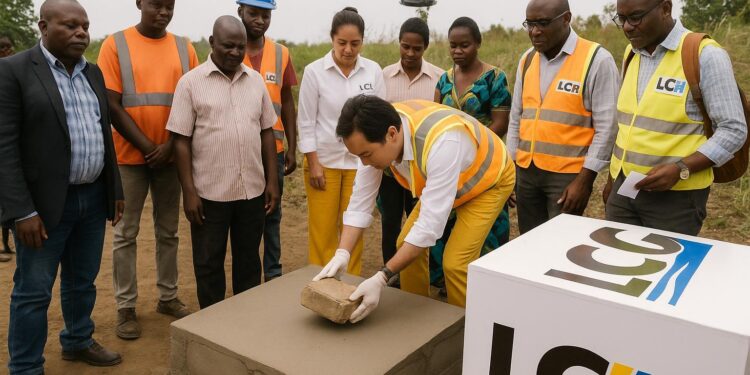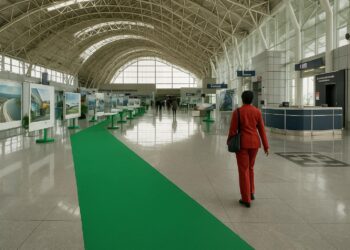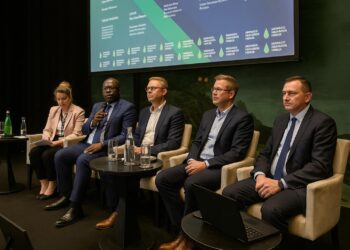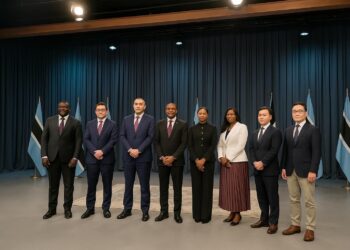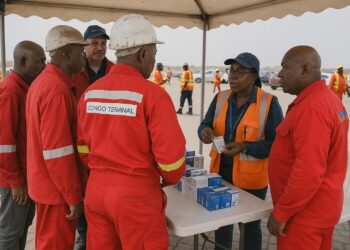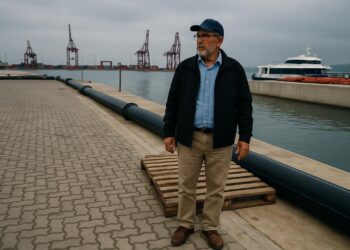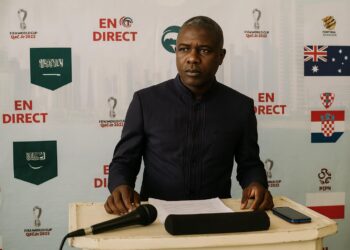Strategic CSR Along the RN1 Corridor
On 15 October, a delegation from La Congolaise des Routes, led by Deputy General Manager Jacques Almaless, inspected Boulankio and Ngatoko primary schools in Pool Department to monitor community facilities financed by the firm. The visit marked a new chapter in the highway concessionaire’s corporate social responsibility programme.
LCR operates National Road 1, the economic spine linking Brazzaville to Pointe-Noire. Management frames social projects near the corridor as an extension of concession duties, echoing government priorities for inclusive growth and demonstrating to financiers that road revenues can coexist with measurable community dividends.
“We want to translate our road mandate into tangible benefits for neighbours of the highway,” Almaless told reporters. Executives also acknowledge that satisfied communities are less likely to vandalise signs or erect informal speed bumps that slow freight convoys and, crucially, lower security costs for the operator.
Potable Water as Catalyst for Human Capital
Boulankio’s 85 pupils had relied on seasonal streams prone to contamination. LCR has begun drilling a 200-metre borehole expected to reach the deep aquifer underlying the Mayombe plateau. Geophysical surveys and static-water-level modelling preceded mobilisation of the rig.
The borehole will feed a forty-five-cubic-metre elevated tank. Within six weeks, the installation should supply latrines, hand-washing points and a planned teaching garden, reducing waterborne diseases that previously kept dozens of children away each term.
Village chief Jean Claude Pombi called the project “a genuine relief for parents who walk kilometres to fetch water.” Education economists note that access to potable water correlates with attendance and exam performance, adding a social-return dimension attractive to impact investors.
The drilling follows earlier 2024 works that regraded the access track and repainted classrooms, illustrating LCR’s cluster approach. By bundling interventions, the company avoids the stop-start cycle that often plagues philanthropy and instead creates a coherent service platform around the school.
Upgrading Ngatoko’s Access and Classrooms
Sixty kilometres north, Ngatoko primary school hosts 130 children but faced leaking roofs and a muddy path that isolated the compound during heavy rains. LCR’s maintenance crews replaced corrugated sheets and stabilised a four-hundred-metre stretch with laterite and proper drainage.
Head-teacher Fidèle Mayela described the support as “providential”, allowing the academic year to open on schedule while many neighbouring establishments still await funds. Timely action protects learning hours, a metric closely watched by development partners financing teacher-training programmes.
Contractors sourced aggregates, timber and catering locally at each critical stage of the build, injecting short-term income into household economies. The approach dovetails with national objectives to stimulate rural employment and retains value within the Pool hinterland instead of importing materials from urban centres.
Road Safety Culture for the Next Generation
Infrastructure aside, the delegation delivered interactive road-safety lessons. Pupils practiced crossing techniques and learned the meanings of reflective signs erected along RN1. The sessions underline that soft skills can be as critical as concrete in reducing accident statistics.
“A sign is a code that speaks to drivers and walkers alike,” Almaless emphasised. Instilling that mindset early helps the concessionaire limit liability events that could disrupt toll revenues and tarnish its operational record.
Teachers will integrate the material into weekly civics classes, ensuring continuity after the project team departs. The initiative supports national campaigns to cut fatalities on the Brazzaville–Pointe-Noire axis, one of Central Africa’s busiest logistics routes.
Signals for Investors Watching ESG in Congo
From an environmental, social and governance perspective, the Pool projects signal a maturing market. Operators now tie concession obligations to social indicators as rigorously as to axle counts, a development welcomed by credit-rating agencies evaluating sovereign and corporate risk.
Diaspora entrepreneurs eyeing rural e-commerce note that safer, all-weather access can unlock last-mile delivery pilots. A classroom connected to RN1 today could host digital literacy hubs tomorrow, widening the talent pipeline for the national tech ecosystem.
LCR managers insist the gestures are “not one-off philanthropy” but elements of a rolling roadmap reviewed quarterly with district authorities. Monitoring dashboards track borehole uptime, attendance rates and accident incidents, offering transparency rarely associated with legacy aid.
If replicated along the 536-kilometre artery, such partnerships could create a human-capital corridor that sustains productivity long after asphalt is laid, providing investors with an infrastructure narrative rooted in social stability and prudent stewardship.

































